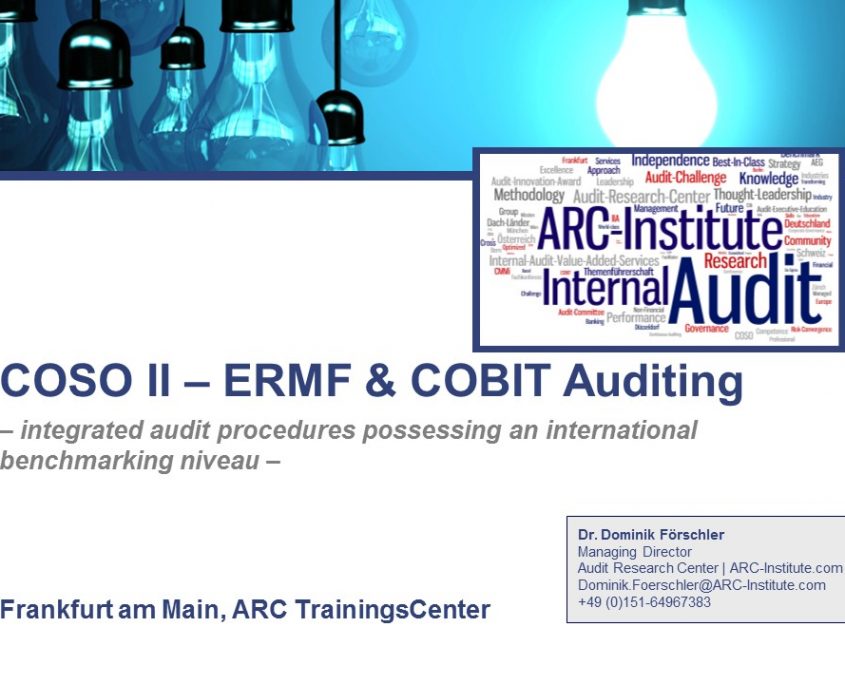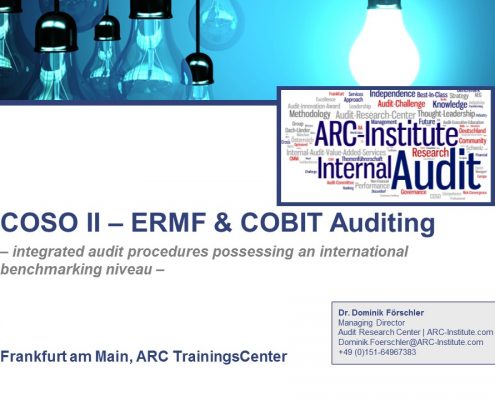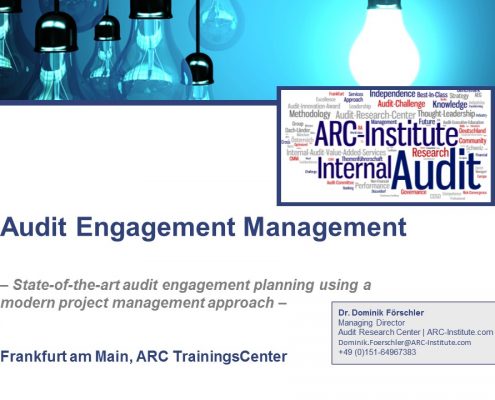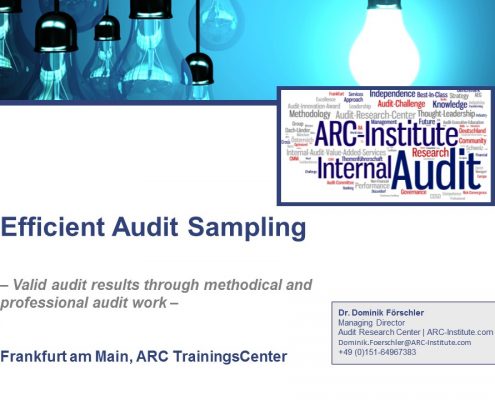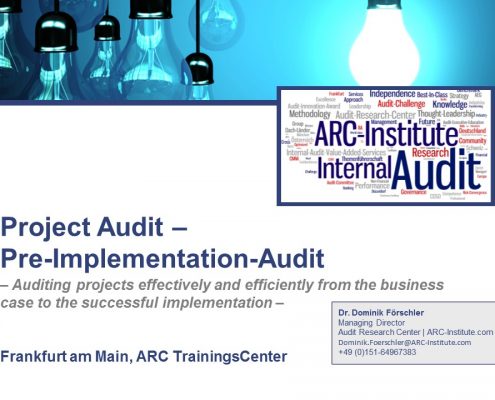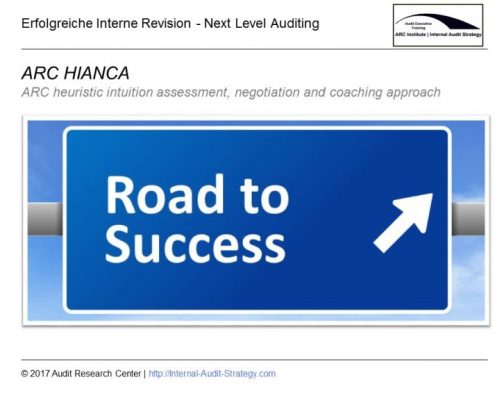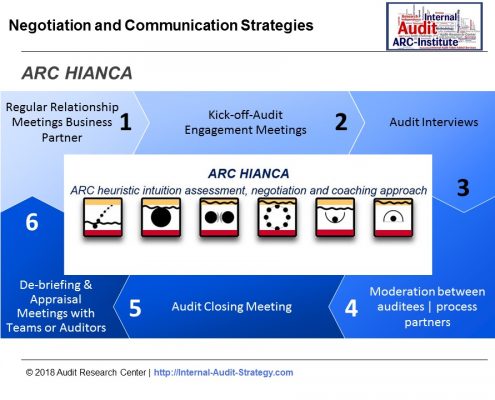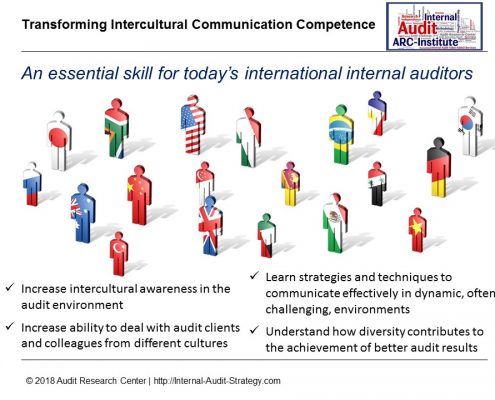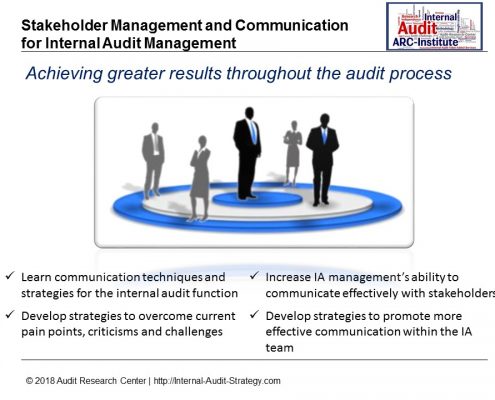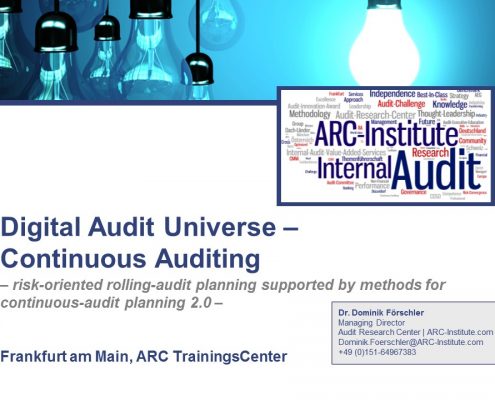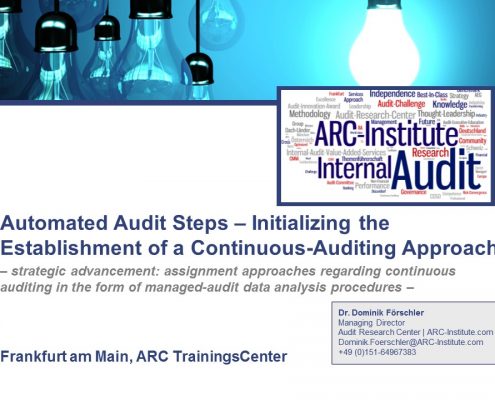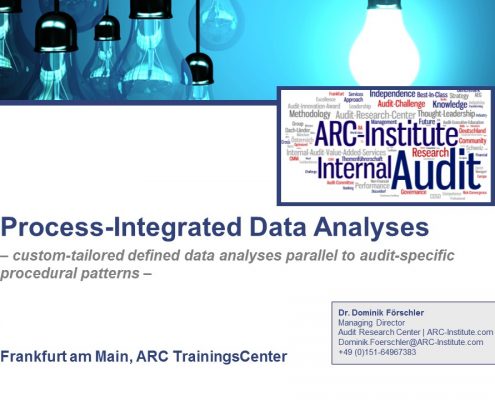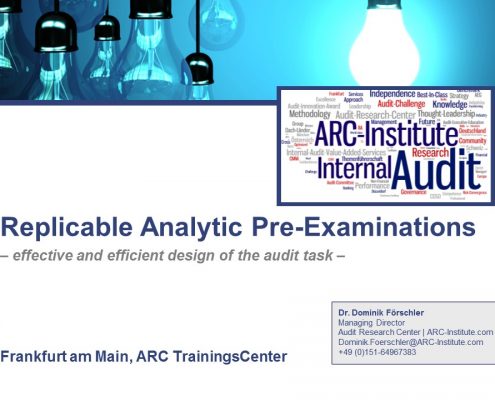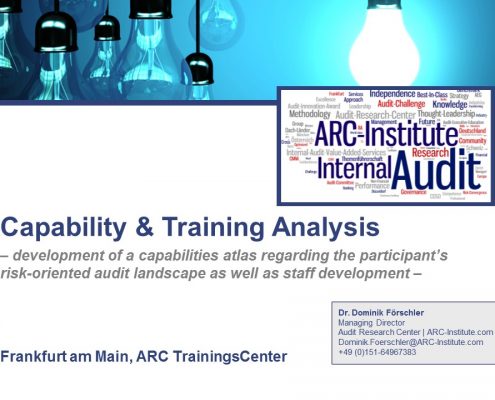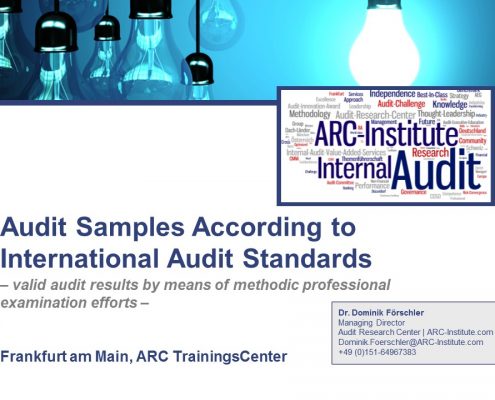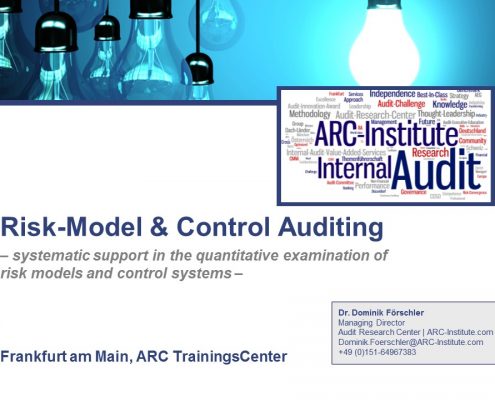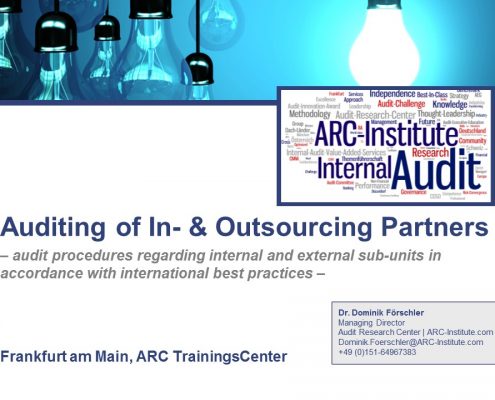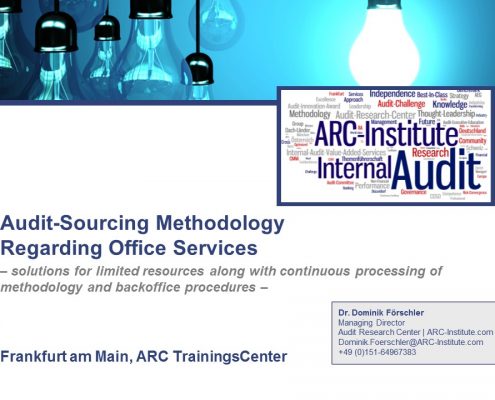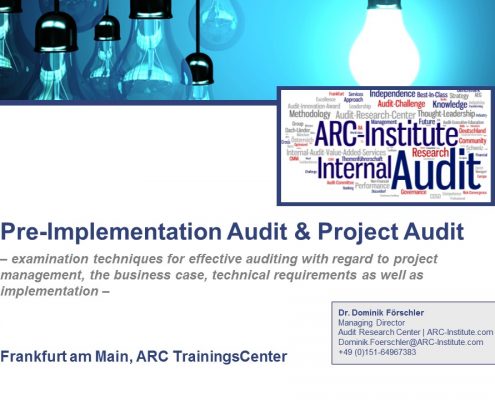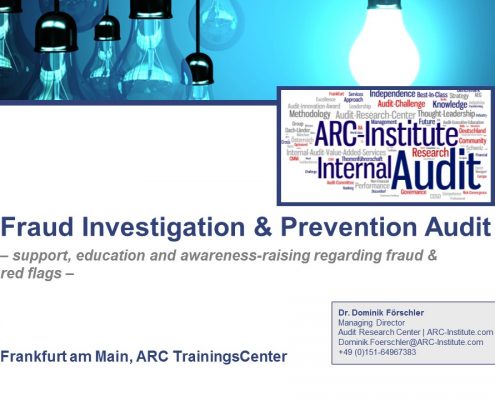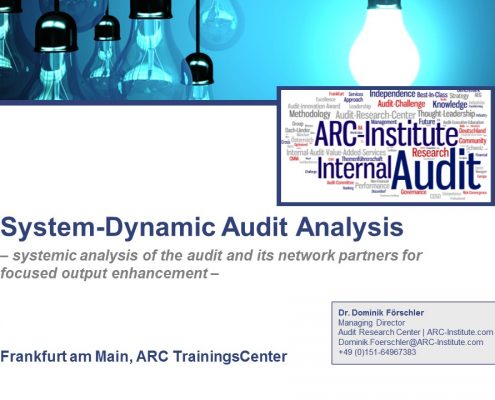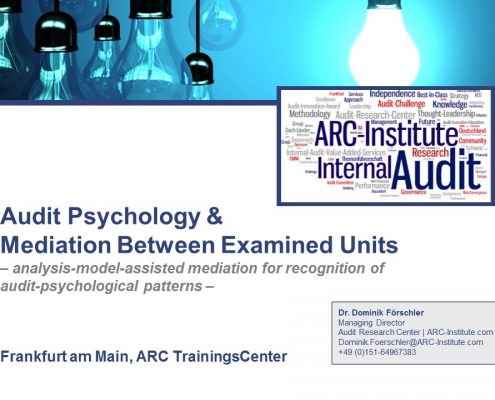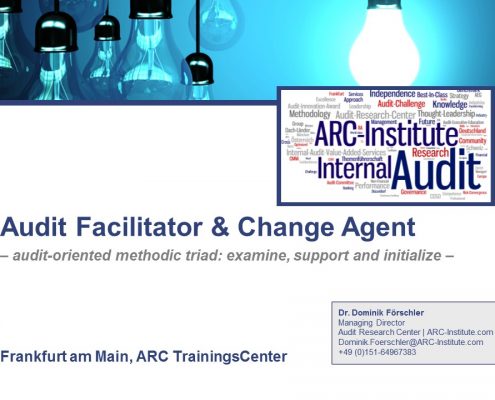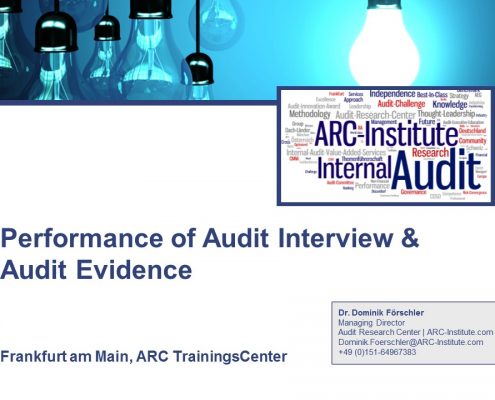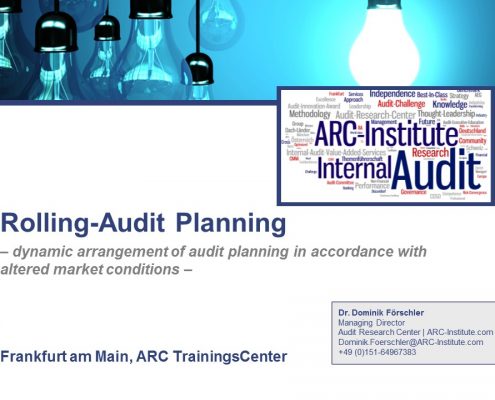COSO II – ERMF & COBIT Auditing
– integrated audit procedures possessing an international benchmarking niveau –
Objective:
As the two global headliners in best-practice solutions for conducting audits, both the COSO II – Enterprise Risk Management Frameworks (ERMF) and Control Objectives for Information and Related Technology (COBIT) procedural models offer an opportunity for integrated auditing between IT and commercial audits in the form of a consistent methodology according to international standards.
Course participants become acquainted with and learn to understand the transformation mechanism of a definition of assignments for examining an internal monitoring system. The internal monitoring system is defined according to the auditing field’s global professional association, the Institute for Internal Auditors (IIA), and consists of three components, namely internal control, risk management and a governance system. The resultant procedural models enable participants to interlink and apply the eight COSO II audit components directly with practical audit goals.
At the same time, ARC instructors employ audit objects and examples from the auditing field to illustrate the options and variations of practical applications in an everyday audit environment. Likewise, in combination with the COSO model in practical audit applications, an interconnection with IT-audit standards such as COBIT and the Information Technology Infrastructure Library (ITIL) is demonstrated. This consequently facilitates an integrated examination procedure between commercial and IT auditors. Within the integration framework of IT-audit examination goals, ARC instructors build upon an internationally validated audit model promoted by the Information Systems Audit and Control Association (ISACA) and the IIA as well as that of numerous projects which have been conducted.
Upon completion of coaching, participants succeed overall in achieving high-quality audit results through the interaction of IT and commercial auditing. Due to the audit procedures learned, course participants significantly increase not only the probability of success regarding their audit results and their degree of audit coverage. Rather, they also achieve a higher risk-oriented accuracy rate within the framework of audits that they perform. As a result, they are capable of achieving a structured, replicable audit success. This conforms entirely with the maturity-level expectations reflected in an audit-managed process in accordance with Capability Maturity Model Integration (CMMI).
Topics:
- Starting point: from the global IIA definition of assignments…to auditing of the internal monitoring system…to COSO II – ERMF
- Regulatory and practical drivers regarding employment of the COSO II model
- Enterprise risk management (ERM) as a consequence – likewise in consideration of repercussions from the economic crisis
- Establishment and application of the COSO II – ERMF model
- Interconnection of IIA stipulations regarding the internal monitoring system as well as COSO II audit components
- Establishment of a COSO-adequate risk-audit metric
- Practical application: transition from a model to audit practice
- Practical application within audit planning, performance of audit and reporting – based on examples and subsequent discussion
- Combined approaches to COBIT and ITIL for achieving an integrated audit procedure
- Detailed implementation options for practical use by participants
- Support for integration and implementation of a company-tailored solution
Management Trainer
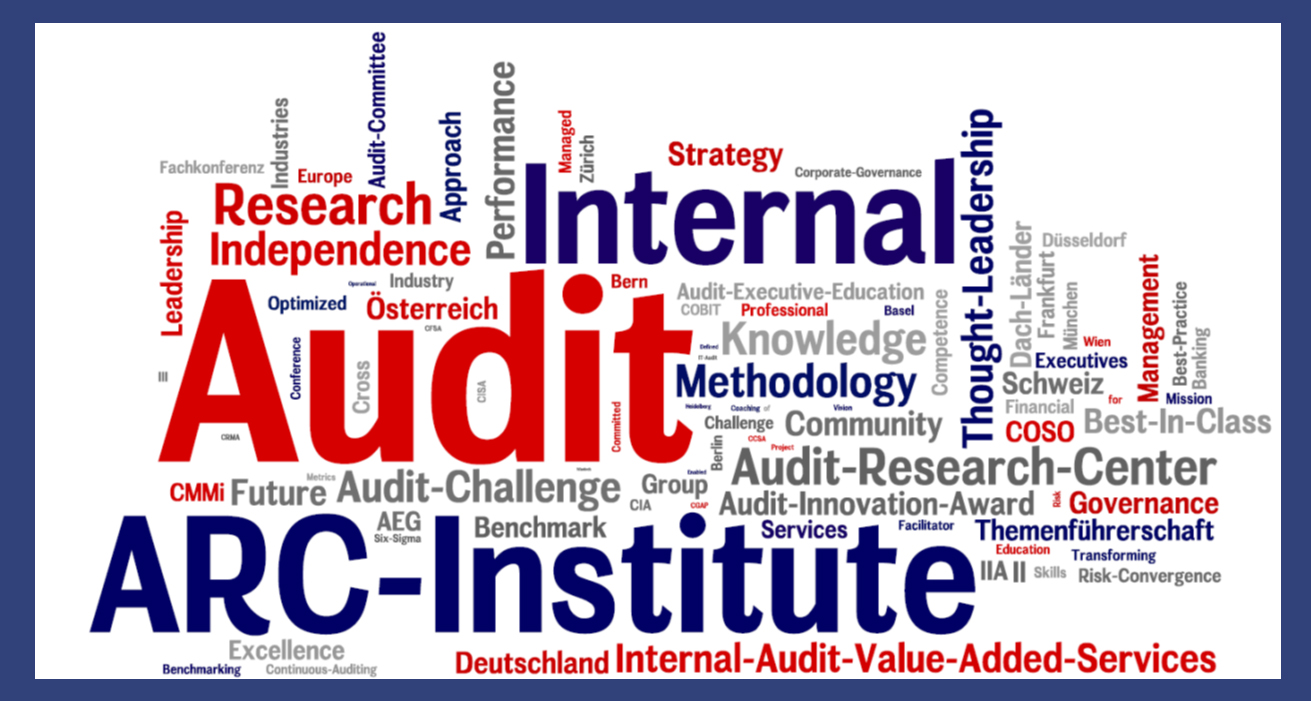
About the ARC Institute
With the Audit Research Center, the ARC Institute provides important impulses for the further development of the audit industry. The focus is on networking science and practice. The focus is on further and new development in cooperation with auditors, companies and associations in order to maintain practical relevance and to develop methods, tools and concepts that can be implemented. The results developed in dialogue with industry experts serve as a guideline and adaptation options in practice today, in order to increase the overall benefit of the company in the long term and sustainably with innovative auditing work.
In the spirit of thought leadership, the ARC Institute and the Audit Research Center stand for topic leadership and forward thinking in the area of internal auditing.
Currently, the ARC Institute supports not only leading supranational institutions in the context of research, consulting and personnel development projects, but also numerous listed companies in the three German-speaking countries of Germany, Austria and Switzerland.
Terms of participation and price
Each open training day is 890,- Euro plus VAT when booking the modules individually. Inhouse training conditions are based on individual pricing and travel expenses. After receipt of your registration you will receive a confirmation of registration with invoice. Please pay the registration fee directly after receiving the invoice. The registration fee does not include 19 % VAT. The price includes participation in the lectures of the booked event, lunch, coffee breaks and seminar documents.
At a glance
Target audience:
Employees and managerial staff from the internal audit function
Methodology:
Interactive workshop, discussion, game-theory strategy analyses according to US-American mathematician John Forbes Nash, Jr. and others, practical exercises, case studies, retrospective summary
Training / Training / Consulting period:
Bookings are based on an audit-situation analysis as well as a personal preliminary meeting (workshops without implementation generally cover 2-4 days of instruction).
Contact:
Would you like more details about ARC’s Audit Training & Consulting Services, or do you wish to book an appointment with its team? Please address your e-mail inquiry to Info@ARC-Institute.com or phone us at +49-2159-6945-904
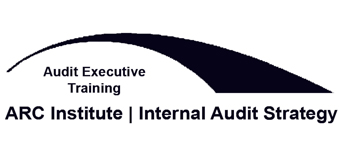
 ARC Institute Profile: Managing Director | Senior Equity Partner
ARC Institute Profile: Managing Director | Senior Equity Partner Tracie Marquardt
Tracie Marquardt ARC Institute Profile: Senior Engagement Manager
ARC Institute Profile: Senior Engagement Manager